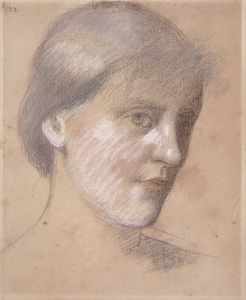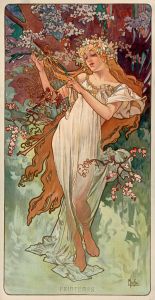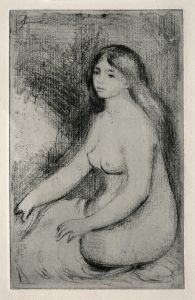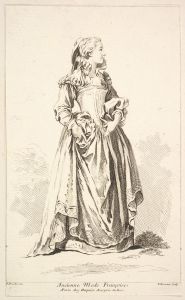
Portrait de Cornélie Renan-Scheffer
A hand-painted replica of Ary Scheffer’s masterpiece Portrait de Cornélie Renan-Scheffer, meticulously crafted by professional artists to capture the true essence of the original. Each piece is created with museum-quality canvas and rare mineral pigments, carefully painted by experienced artists with delicate brushstrokes and rich, layered colors to perfectly recreate the texture of the original artwork. Unlike machine-printed reproductions, this hand-painted version brings the painting to life, infused with the artist’s emotions and skill in every stroke. Whether for personal collection or home decoration, it instantly elevates the artistic atmosphere of any space.
Ary Scheffer, a prominent 19th-century French painter, is known for his Romantic style and his ability to capture the emotional depth of his subjects. One of his notable works is the "Portrait de Cornélie Renan-Scheffer," a painting that exemplifies his skill in portraiture and his connection to the intellectual circles of his time.
The portrait depicts Cornélie Renan-Scheffer, who was the daughter of Ary Scheffer's sister, Cornélie Scheffer, and the renowned French philosopher and historian Ernest Renan. This familial connection places the painting within a context of intellectual and artistic exchange, as both Scheffer and Renan were influential figures in their respective fields during the 19th century.
Ary Scheffer was born in Dordrecht, Netherlands, in 1795 and later moved to Paris, where he became an integral part of the Romantic movement. His works often explored themes of emotion, spirituality, and human experience, and he was known for his portraits of notable figures, including literary and political personalities. Scheffer's style is characterized by its clarity, attention to detail, and the ability to convey the inner life of his subjects.
In the "Portrait de Cornélie Renan-Scheffer," Scheffer employs a delicate palette and precise brushwork to capture the likeness and personality of his niece. The painting reflects the Romantic era's emphasis on individualism and emotional expression. Cornélie is depicted with a serene and contemplative expression, suggesting a depth of character and intellect. The background is kept simple, focusing the viewer's attention on the subject and enhancing the intimate nature of the portrait.
Scheffer's relationship with his niece and her family is indicative of the close-knit connections between artists and intellectuals during this period. Ernest Renan, Cornélie's father, was a significant figure in the world of philosophy and history, known for his works on early Christianity and his controversial views on religion. The intersection of Scheffer's artistic talent and Renan's intellectual pursuits highlights the cultural vibrancy of 19th-century France.
The portrait is also a testament to Scheffer's ability to transcend mere representation and capture the essence of his subjects. His portraits are not just likenesses but are imbued with a sense of the subject's inner world, making them enduring works of art. The "Portrait de Cornélie Renan-Scheffer" is a fine example of this skill, showcasing Scheffer's mastery in rendering both physical appearance and psychological depth.
While specific details about the painting's commission or its current location may not be widely documented, its significance lies in its representation of familial and intellectual ties. It serves as a window into the personal and professional networks that shaped the cultural landscape of the time.
Overall, Ary Scheffer's "Portrait de Cornélie Renan-Scheffer" is a remarkable work that reflects the artist's Romantic sensibilities and his connection to the intellectual elite of 19th-century France. Through his careful attention to detail and ability to convey emotion, Scheffer has created a portrait that continues to resonate with viewers, offering insight into the life and times of its subject.


















